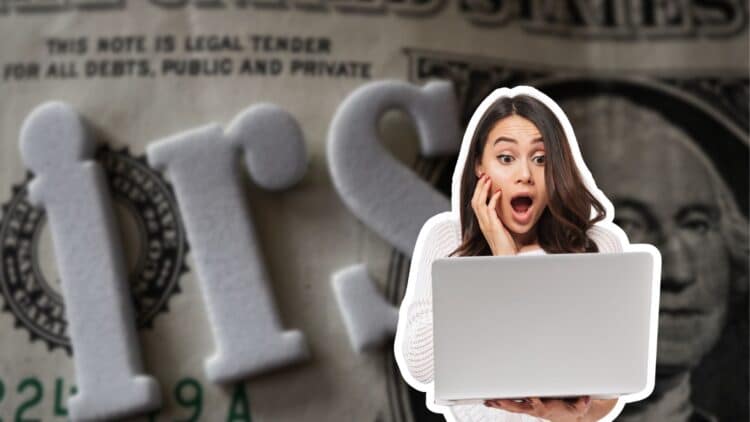Although paying in cash can be a harmless shortcut to save money and avoid paperwork, several efforts to strengthen IRS oversight could come back to bite you. Since tax evasion continues to cost the U.S. government billions each year, the IRS is utilizing its full power and tools to track down unreported income and the first place that they are starting is with citizens’ bank accounts. In a nutshell, it’s important to understand how the IRS already has access to your financial information, and what you need to avoid moving forward.
How can the IRS check your bank account?
For the IRS, deep digging is not required in order to start learning about a citizen’s finances. The IRS gathers the bulk of its information from 3 main sources: returns, income statements filed under a citizen’s Social Security Number (like W-2s and 1099s), and data from third parties.
- If a citizen’s bank account earns more than $10 in interest, the bank files Form 1099-INT with the IRS.
- Investment income gets reported via Forms 1099-DIV or 1099-B.
- Payments processed through platforms like PayPal or Square are often reported using Form 1099-K.
- IRAs and retirement contributions can be seen through Form 5498.
Therefore, from the various tax forms, the IRS is already clued up about most citizens’ financial accounts and the IRS is in many cases well aware of how much money is in each citizen’s bank accounts. Where the IRS will step in is if the numbers on a citizen’s tax return don’t match the information that the IRS has received from banks, third parties, or brokers.
What causes the IRS to dig deeper into citizen’s bank accounts?
The IRS already has access to plenty of data, however, they only more carefully scrutinize a citizen’s actual transactions during an audit or when a citizen owes back taxes. Citizens can do 5 things to avoid an audit. When tax auditors notice suspicious or unexplained deposits in the form of cash, they want to dig deeper to find out where it came from.
Citizens who are under audit or those who have unpaid taxes, may see the IRS:
- asking a citizen for detailed bank statements or financial records.
- investigating accounts not listed on a citizen’s return.
- requesting evidence from a citizen to explain large or frequent cash deposits.
Citizens who don’t cooperate with the IRS can see formal summons being issued to their banks. In this case, the IRS can bypass a citizen and get the citizen’s records directly. While a citizen can contest a summons, the process is difficult, and a citizen is only deemed successful if the request is proven to be unnecessary or unjustified.
Don’t engage in under-the-table transactions
While the idea of avoiding paperwork and paying someone in cash for their services is easier, it is a risk and can create problems with the IRS. Paying a contractor, nanny, or tutor in cash does save both parties money, but is deemed a gray area.
Generally, service providers who offers lower rates for cash payments are trying to avoid reporting that income and whilst you may initially save, this cash transaction does leave a trail, especially when citizens withdraw large sums of money from their bank accounts to make that cash payments. When the IRS audits citizens, they can question a citizen and ask the citizen to explain where the money went which could lead to a broader investigation.
Due to the widespread tax avoidance throughout the country, proposals have been suggested that the IRS should monitor bank accounts over certain thresholds. Although the initial $600 threshold sparked public outrage, monitoring bank accounts with $10,000 or more have been discussed. These efforts on part of the IRS are an attempt to close the gap of taxpayers who get away with unreported income. Citizens should always file their taxes by the deadline as a tax rebate in certain states makes reporting all finances worth it.


